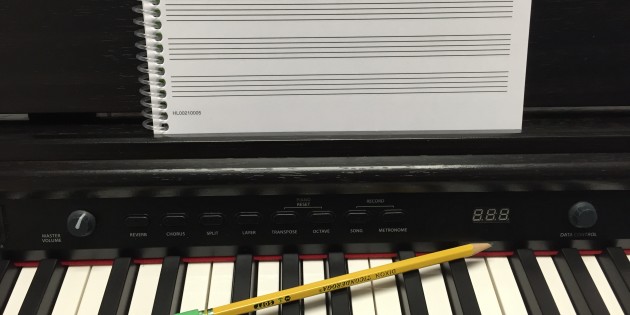The answer is…..yes….or no…..actually, it depends.
The truth is some of our best known musicians and singers, including Pavarotti and Jimi Hendrix, did not read music. Did that hinder them in any way? Obviously not, but could they have been better at their craft if they learned to read and write music? Probably.
The earliest forms of western music notation appeared about 1,000 years ago, obviously music has existed for many years before this. Music came first and the theory and notation followed.
In the era before sound recordings, the only way to play a piece written by others would be to have someone else play it for you, or to read the music.
In the modern era, sound recordings make music available to any musician with a well developed ear, regardless if they read or not.
In fact, if you were to choose a musical skill, having a good ear would trump being able to read in most situations.
When You Need To Read
Reading is essential in certain situations. If you want to be a session player (playing on movie soundtracks, etc) then a high level of sight-reading is required (even for singers).
Because of the huge costs of recording a full orchestra and choir, they simply can’t spend the time and money to teach the music to you. Also, since the music is original and recently composed, gaining access to recordings is not possible.
When You Don’t Need To Read
In most popular music situations, reading is not required. If you are playing for a recording artist, the parts are usually created in the studio, which requires creativity and a good ear, but not reading.
If you are playing for a touring artist you will usually learn the parts from the existing recordings. Again, your ear and playing ability are key.
When Reading Becomes A Crutch
I have seen students practice classical piano from the age of 5 and learn to read anything put in front of them, but if you ask them to play a 12 bar blues they look at you completely confused.
Students in this situation rely on reading to the detriment of their ear and musical creativity.
They are fine as long as the notes telling them what to play – but completely lost the moment these notes are gone.
What Should You Study?
I recommend putting your ear first – music is sound and written notes only represent sound. The more you can clearly hear what’s going on, the better musical you will be.
But reading and music theory is also recommended. Why? Because the more deeply you understand the patterns and rules of music, the better your ear will get, and vice versa.
A well-rounded musician will study everything that improves their skills, and reading and writing music will certainly do that.
P.s. If you’d like to take your musical skills to a higher level, get started HERE.
